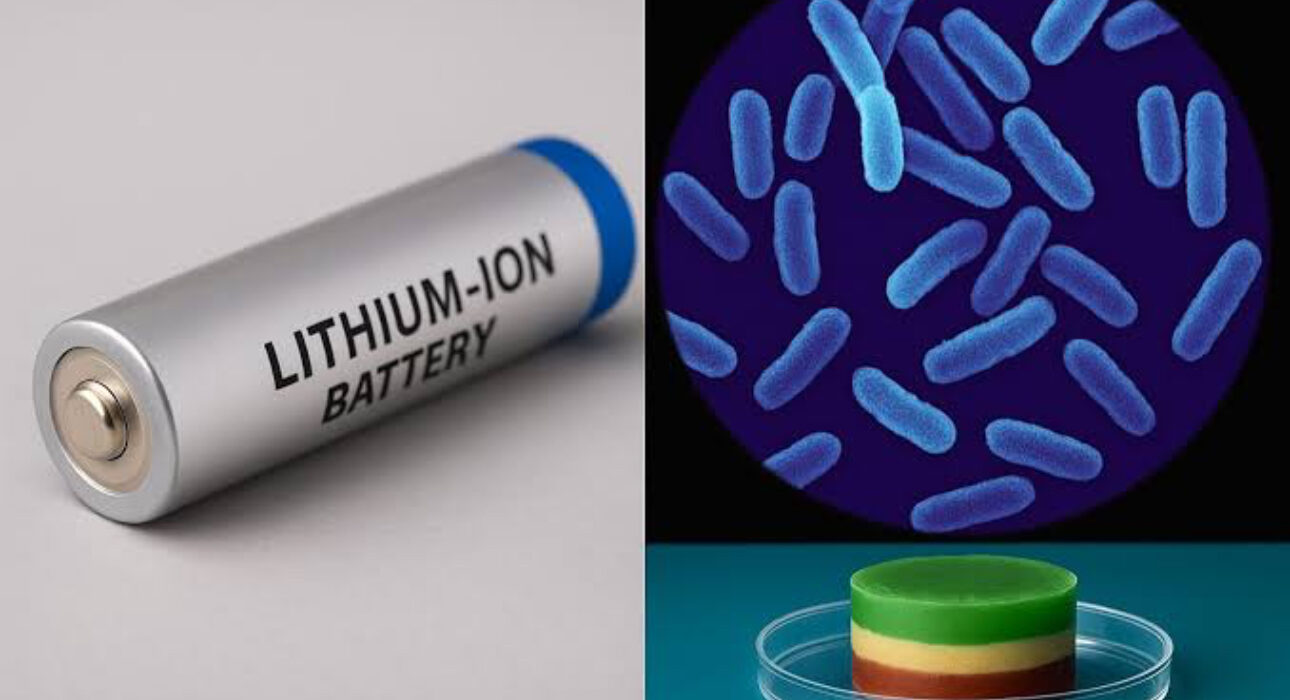China Retires Lithium, Unveils ‘Perfect Battery’ Made from Living Organisms

Chinese scientists have unveiled a groundbreaking bio-battery powered by living organisms, potentially signaling a major shift away from traditional lithium-ion batteries.
This innovative technology, which harnesses the natural electrical potential of electroactive microorganisms, promises a more sustainable, efficient, and environmentally friendly alternative to conventional energy storage systems.
At the heart of this new battery are electroactive microorganisms encapsulated within a 3D-printable, conductive hydrogel matrix. These biofilms are designed to generate electricity through natural biochemical processes, achieving energy conversion efficiencies as high as 99%.
Unlike conventional batteries that rely on finite, often environmentally damaging materials like lithium, cobalt, and nickel, this living battery leverages renewable biological resources, reducing its carbon footprint and resource dependency.
The living hydrogels used in this system are created using alginate, a biopolymer derived from seaweed, which provides a stable, flexible framework for the microorganisms.
These hydrogels maintain high viability throughout the battery’s lifecycle, retaining up to 97.6% efficiency even at the end of their operational lifespan. This durability makes the bio-battery a potentially revolutionary solution for a range of applications, from wearable electronics to biomedical devices.
The bio-battery offers several significant advantages over traditional lithium-based systems, including:
• Sustainability: By eliminating the need for rare and environmentally taxing metals, this battery presents a more sustainable alternative to conventional power sources.
• Self-Charging Capability: The microorganisms within the battery continuously produce electricity through metabolic processes, reducing the need for external recharging.
• Biocompatibility: The use of living materials makes these batteries potentially suitable for medical devices, nerve stimulation, and other biomedical applications.
This development is part of a broader push by China to lead the world in energy innovation. In addition to bio-batteries, Chinese researchers are also exploring gravity-based energy storage systems, which use the simple principle of gravitational potential energy to store and release power.
These systems offer another promising alternative to chemical batteries, providing efficient, long-term energy storage without the need for complex, costly materials.
The introduction of this living bio-battery could reshape the global energy landscape by reducing reliance on scarce natural resources and minimizing the environmental impact of battery production. As research progresses, this technology could be integrated into a wide range of applications, from powering small electronic devices to supporting large-scale renewable energy grids.
If successfully commercialized, this innovation could significantly reduce global demand for lithium, cobalt, and nickel, potentially disrupting the multi-billion-dollar battery industry and redefining the future of energy storage.









